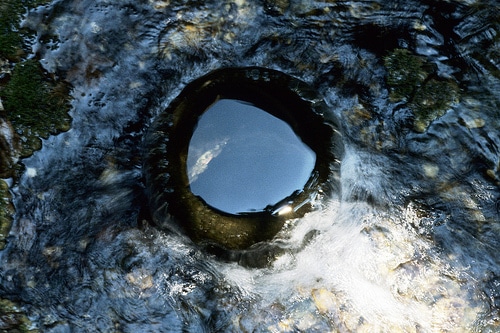This article will cover how keeping groundwater away from septic systems can save you money. Have you ever asked yourself what your most valuable possession is? It could be your car, your home, your ranch, your horse, your iPad, your Blackberry, or your wedding dress. These would be the usual answers. Only a handful of people would tell you that their most valuable treasure is the water that they drink. Well, water is the substance that sustains all life on earth. It is a renewable resource because of the fact that water evaporates, condenses, and precipitates. Groundwater is the main source of drinking water. It is the treasure that all living creatures should take good care of. At present, groundwater is the country’s most vital natural resource. It gives majority of the people’s water supply. Many residents and industries depend of groundwater to sustain everything that they do. The surrounding bodies of water also rely on groundwater to supply the water they need especially during the dry season. However, when there is a drought, groundwater is significantly affected. With the reality of drought, groundwater managers are more aware of how groundwater should be taken care of.
Homeowners should play a crucial part in keeping groundwater away from their septic systems so that the clean water supply remains safe to drink. This way, management of and access to groundwater during times of need can be made possible especially if the homeowners have their own wells in their premises. To keep the groundwater safe, you as the homeowner should make sure that you observe the following:
- Adhere to the pump out schedule set with the septic expert. The frequency of the septic’s pump out is established according to the number of people in the household. Every septic tank is designed and made with a certain capacity. You should try your best to have the sludge removed regularly so that the raw wastewater can have enough room for treatment. If the sludge is not removed on time, the solid waste materials will flow into the drain field and clog the entire system. Eventually, the raw sewage will seep into the groundwater.
- Remove trees with invasive root systems. These roots are very strong and persistent. They want to gain access to the water and nutrients in the septic system. These roots could get into the smallest gaps in the septic system. They could easily invade and damage the pipelines that channel the effluent to the drain field system. When this happens, the effluent won’t be purified anymore. It will leak into the ground, reaching the groundwater system.
- Conserve water. This is a good way of making sure that the resident bacteria in the septic tank will be able to do their job in degrading the solid waste particles. If there is an excessive water load, the tank’s capacity may be reached prematurely, resulting to an overflow. The sudden pressure that enters the tank will stir up the solid waste particles, pushing them into the drain field. Once the solid waste particles enter the drain field, the drain field lines will be clogged. The septic system will eventually fail because of the drain field’s inability to distribute the effluent. The raw sewage will seep into the ground and contaminate the groundwater.
- The vehicles and structures over or near the septic system should be removed. Soil compaction results from the heavy weight of these obstacles. Here, the septic system components are damaged and leaks happen. The untreated wastewater then reaches the groundwater.
- Use eco-friendly cleaners. When harsh chemical cleaners are used, they seep into the groundwater and lace the clean water supply with hazardous compounds.
Making sure that groundwater stays safe for consumption can be taxing indeed, especially when you don’t have full supervision over your household or if you are simply too busy. Keeping groundwater away from septic systems will definitely help you have clean water, even if it is the dry season. Ask the help and guidance of your local septic expert and you’ll be on your way to having a healthier and safer living environment.
